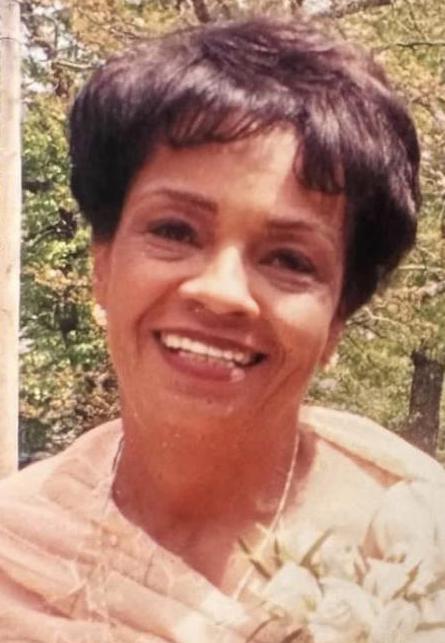To her children, Charlene Roberts-Hayden was like a character out of the book and movie “Hidden Figures’’ — just born a generation later, and working as a pioneering Black woman in computer programming on US Defense Department contracts, instead of on NASA’s space race team. Her projects were always secret, her work always complex.
“We never talked much about what she did,’’ said her son, Kevin Hayden, the Suffolk district attorney. “What she did was classified — not that we would have understood it, anyway.’’
Away from her hush-hush work, though, Ms. Roberts-Hayden was inspirational. As a person of strong Catholic faith, and a Black woman in a workforce made up mostly of white men, she set an example for family and friends about how to excel while facing challenges.
“She made a lot less than her white male counterparts, but she never showed that it bothered her,’’ her daughter Karen McAdams of Wellesley recalled. “She just kept going and succeeding.’’
Ms. Roberts-Hayden, who also was a longtime soprano in the Archdiocese of Boston Black Catholic Choir, died May 11 in hospice care at her home in the Falls at Cordingly Dam senior living center in Newton. She was 86 and her health had been declining.
“She was a tremendous role model,’’ said her daughter Dr. Deborah Hayden, a physician who lives in Attleboro.
Ms. Roberts-Hayden was proficient at a high level with the Ada computer programming language, which has been used in areas such as air traffic control, space technology, and military systems.
Her family said she had worked for GTE Government Services, a defense contractor in areas such as electronics and intelligence services.
In 1996, she was among those honored by the Special Interest Group on Ada, a professional organization that promotes understanding and use of the computer language.
“Charlene distinguished herself in a variety of visible roles during the introductory years of Ada, including being an early Ada-for-design pioneer,’’ the Special Interest Group on Ada said in a 1996 statement.
She served as the organization’s vice chair for meetings and conferences for more than seven years, and also had been its “first users committee chair who really represented real users,’’ the group said.
Part of her work involved traveling to Europe, which “was something she really enjoyed and something that probably would not have been possible for her without that career,’’ Karen said.
Ms. Roberts-Hayden “was in a field where very few Black women were working,’’ her son said, adding that “in many ways, she was a trailblazer, and an unknown one.’’
Part of the legacy Ms. Roberts-Hayden left to her children was “her faith in God,’’ Deborah said. “It was unwavering, and she passed that on to me, and it’s gotten me through my life.’’
Ms. Roberts-Hayden’s marriage to Robert C. Hayden, an author of books about Black history, ended in divorce while their children were growing up.
“She was our primary caregiver before, during, and after,’’ Kevin said.
“She was a woman of deep faith — she was a Catholic through and through,’’ he added. “My dad instilled our work ethic and she instilled our faith and spiritual beliefs. I believe her prayers and her faith literally saved my life, probably more than once.’’
When her children were growing up, Ms. Roberts-Hayden made sure they had a strong religious foundation. When they turned 18, she left to them the decision about the faith path they would follow.
Childhood, though, was a time of devotion. During Lent, for example, the family went to church daily.
“I can remember being an altar boy at 7 a.m. Mass every single day during Lent,’’ Kevin said, “and then she’d take me to school.’’
Born on Sept. 24, 1938, Charlene Roberts grew up in Medford, the second of three siblings.
Her mother, Doris Ringles Roberts, was an elocution coach who worked with theater students.
“My grandmother also was a woman of great faith, so that definitely was passed down,’’ Karen said.
Deborah said Doris Roberts “was a tremendous role model for me also, and a very strong woman, which she passed on to my mom — between taking on racism and being in service to people.’’
Ms. Roberts-Hayden’s father, Charles Roberts, was a maintenance supervisor for the Medford Public Schools, and kept a desk by the boiler in a public school basement.
When she needed a break from the racism she faced among classmates, she would go down there to share lunch with her father at his desk, Karen said.
In 1960, Ms. Roberts-Hayden graduated from Boston University with a bachelor’s degree in mathematics. She and Robert Hayden married after her junior year, when Robert had just graduated from BU. He died in 2022.
Outside of her programming work, she tutored students in mathematics at the middle school, high school, and college levels, and was an adjunct professor at area colleges.
After retiring, she worked in the Boston Archdiocese’s office of Black Catholic ministries and volunteered extensively, including with women jailed at the Massachusetts Correctional Institute at Framingham. An expert card player, she taught them to play bridge.
Because of her work success, Ms. Roberts-Hayden was able to design and build a summer house in Oak Bluffs, on Martha’s Vineyard, in 1991.
She gardened extensively outside the home, which has become a retreat for three generations of her family, and she took up tennis with as much determination as she brought to computer programming.
“Anything that my mom decided to do, she put every ounce of who she was into it,’’ Kevin said. “If she did something, she did it 110 percent. That’s just how she was.’’
Karen said their mother “had this amazing can-do attitude. She was very steadfast in her confidence in herself. There was really nothing she felt couldn’t be done if we as a family put our minds together. One of our good family friends described her as a warrior recently, and I think that’s a perfect word for her.’’
In addition to her two daughters and son, Ms. Roberts-Hayden leaves five grandchildren.
A funeral Mass will be held at 10 a.m. Monday in St. Katharine Drexel Church in Dorchester.
The Archdiocese of Boston Black Catholic Choir will sing at Monday’s funeral Mass.
“Charlene was an incredible woman — a lovely human being, a very caring, hard-working, faithful, dedicated, solid person,’’ said Meyer Chambers, the choir’s director.
“Once she became a member of the choir, she never stopped,’’ he recalled. “She loved singing, she loved the camaraderie, she loved going to rehearsals.’’
Even as age made singing more challenging, “she still sang with us,’’ Chambers said.
“When somebody finds joy in being around you, that’s infectious, it gets into every fiber of your being and makes you want to be better, and Charlene did that for people by her nature, by her personality,’’ he said, adding that she brought warmth to every encounter.
“I never ended a conversation with Charlene without her telling me how much she loved me,’’ he said.
Bryan Marquard can be reached at bryan.marquard@globe.com.

